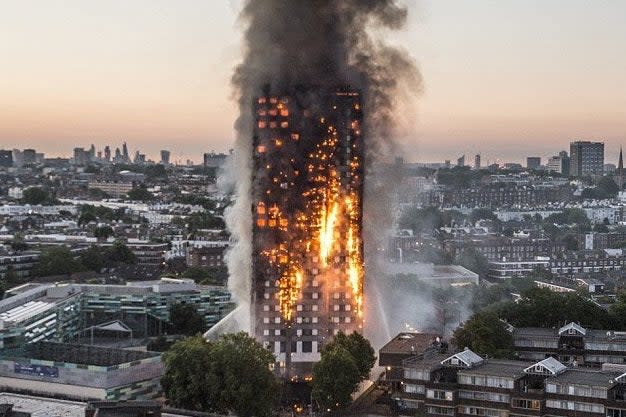London Watchkeeper Service: 24-hour centre to lead capital's response to terror attacks and disasters

A 24-hour emergency management centre will be created in London to bolster the city’s response to terror attacks and major disasters.
A dedicated team called the London Watchkeeper Service is being set up to help London government following last year’s terror attacks and Grenfell fire.
The service will help Cobra, the government emergency council, and use “public and private” data to monitor what is going on in London.
The command centre’s job will be to keep lead agencies updated on everything from extreme weather, terror attacks and public disorder to fires, transport disruption and health problems.
The Greater London Authority’s (GLA) current model of one on-call 24-hour officer reporting on major incidents was described by officials as no longer “sustainable” due to the volume of incidents that London faces.
Professor David Alexander, an expert in disaster reduction at University College London, told the Standard: “Other countries have civil protection services with emergency operations centres that are manned around the clock and that have a monitoring brief as well as a remit to issue warnings and coordinate emergency response activities.
“Britain does not have a fully fledged civil protection service but relies on the police to be the lead agency in most emergencies.
“Failure to anticipate events is a potential Achilles heel. Part of constructing the vital common operating picture, to be shared for response by all agencies, is to feed information into it in a very timely manner.”
City Hall, which has worked with the Government on the proposal, has earmarked £500,000 to start the scheme with nine members of staff on a 24/7 rota.
The service will feed information to the Mayor of London, the GLA, London councils and local authority gold command, which assigns emergency responsibility to a borough chief executive each week.
The Mayor of London’s chief of staff, David Bellamy, said during a recent budget meeting: “There are simply too many incidents, including protests and false alarms — and social media means they are in the public eye — for one person to deal with reactively, especially given the high number that fall outside business hours and the prolonged workload that results when they occur.”
Plans for the service will be finalised when the City Hall budget is approved.

 Yahoo News
Yahoo News 